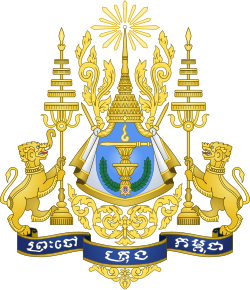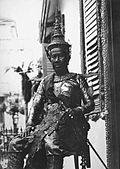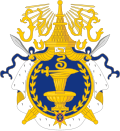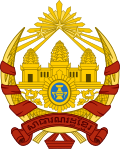| Head of State of Cambodia | |
|---|---|
| ប្រមុខរដ្ឋនៃកម្ពុជា | |
 | |
 | |
| Style | His Majesty |
| Type | Head of state |
| Residence | Khemarin Palace (official) The Royal Residence (secondary) |
| Seat | Phnom Penh (official) Siem Reap (secondary) |
| Appointer | Royal Council of the Throne |
| Term length | Life tenure |
| Formation | 19 October 1860 |
| First holder | Norodom (as King) |
 |
|---|
This is a list of heads of state of Cambodia from the accession of King Norodom on 19 October 1860 to the present day. It lists various heads of state which served in the modern history of Cambodia, under several different regimes and with various titles.
Contents
From 1860 onward, there have been 12 heads of state (acting heads of state are not counted).
The current head of state of Cambodia is King Norodom Sihamoni, since his election by the Royal Council of the Throne on 14 October 2004. [1] [2]



















